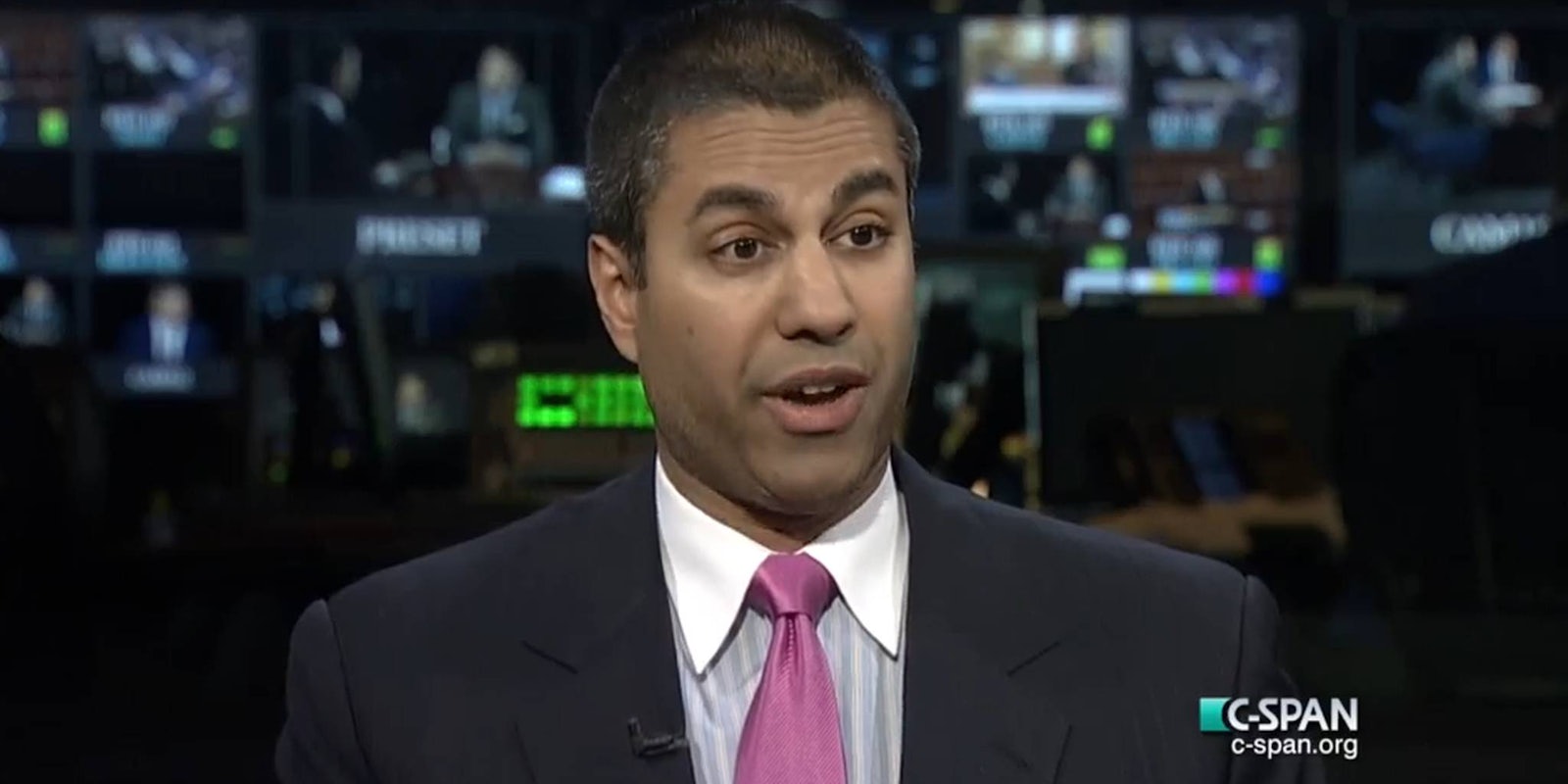In his first press conference since the Trump administration tapped him to serve as the acting chair of Federal Communications Commission, Pai stressed the FCC plans to “close the digital divide” on high-speed internet access between rural and impoverished regions of America.
Pai, a former lawyer for Verizon, was quick to mention his first vote as chairman of the FCC, which would award the state of New York $170 million in Connect America Funding to expand broadband across rural regions.
A 2016 FCC report on broadband found that rural areas have significantly slower internet access compared to cities in America. An estimated 39 percent of rural America lack access to broadband internet of at least 25 Mbps downloads and 4 Mbps uploads, compared to 4 percent for urban areas.
The FCC’s new “Broadband Deployment Advisory Committee,” or BDAC, will begin work on identifying older FCC regulations that it sees as blocking broadband expansion. BDAC plans on holding its first meeting this spring.
“Today, I am excited to announce the formation of the Broadband Deployment Advisory Committee (BDAC), which will aim to provide advice and recommendations to the FCC on how to do just that,” wrote Pai in a statement. “The BDAC’s mission will be to identify regulatory barriers to infrastructure investment and to make recommendations to the Commission on reducing and/or removing them.”
The FCC’s senior Republican member, Pai has been a vocal critic of the FCC under the Obama administration, even when the agency’s rules set out to meet his stated goals of expanding high-speed internet access to rural America. Pai voted against the expansion of high-speed municipal broadband internet networks on the grounds that he felt the agency didn’t have the authority to preempt state laws baring these networks.
Former President Barack Obama aimed to expand broadband access to rural America as well, but through a means that is despised by free-market Republicans and private industry: The Obama administration asked the FCC under former Chairman Tom Wheeler to fight state laws that prevent cities from building their own municipal internet services.
Pai believes the FCC under Obama’s plan largely failed. He regularly voted against the Democrat-led FCC’s regulations on broadband, including reclassifying broadband as a publically needed service under Title II of the Telecommunications Act.
“After seven years, $63.6 billion spent, and plenty of talk, this administration’s policies have failed to deliver ‘advanced telecommunications capability’—broadband—to the American people in a reasonable and timely fashion. The standard set forth by Congress is not being met. Rural America is being left behind,” wrote Pai in a concurring FCC statement back in 2016.
One idea to expand internet access to poor regions proposed by Pai involves tax incentives for companies to build high-speed internet networks in rural and impoverished regions of the country. Pai’s proposal would identify areas where average household income is below 75 percent of the national median, known as “gigabit opportunity zones.” State and local lawmakers would then be asked to “adopt streamlined, broadband deployment-friendly policies.” Pai’s plan also includes tax incentives and tax credits for companies building high-speed networks.
Pai was silent Tuesday on the future of net neutrality, which he voted against and continues to publically oppose. Pai said that net neutrality’s “days were numbered” in his first statement as FCC chairman back in December.
Net neutrality is the principle that internet service providers must treat all data delivered to internet customers equally, meaning they may not block or slow down internet traffic from one service or website or increase speed to another.
Pai recently introduced a proposal that would eliminate net neutrality transparency requirements for ISPs with less than 250,000 subscribers.
Critics of Pai warn that he will lead the way for a permissive, regulation-light FCC that will permit high-stakes mergers and deliver major victories for phone and cable companies. The FCC under Obama blocked several mergers between phone companies in recent years, including deals between AT&T and Time Warner, Sprint and T-Mobile USA, and Comcast and Time Warner Cable.
Verizon and Charter are currently in discussions to merge, which would effectively combine two of the country’s biggest internet service providers. Both Pai and Jeff Eisenbach—who steers FCC and telecommunications policy on Trump’s transition team—have worked for Verizon.
Net neutrality and internet freedom advocates protested outside of the FCC during Tuesday’s meeting.
“Net neutrality is not a partisan issue,” Sean Vitka, legislative counsel for internet freedom group Fight for the Future, said in a statement, “it’s a basic technological principle that has made the internet we love into what it is today.”


